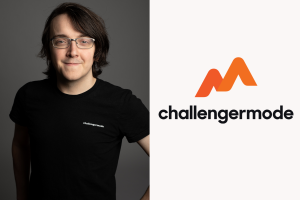Philip Hübner, Chief Business Development Officer of tournament platform Challengermode, writes for Esports Insider to discuss the recent increase in esports investment by athletes and whether this trend will continue.

RELATED: A guide to: Celebrities in esports — football, basketball and sports
Barely a month goes by without news of a sports personality making a move into the esports space.
Whether it’s founding an esports team, buying into existing ones or investing in esports technology, sports personalities account for a disproportionately large number of esports industry headlines.
However, why is that? Is gaming the secret passion of sports personalities? Do these individuals want to support the industry moving forward? For some personalities that might be the case, but there are a lot of other factors in play.
The most cynical answer to the question is that athletes are doing it for the same reason anyone invests in anything — they see the opportunity for financial gain. Esports has experienced a decade of explosive growth, growing from a fringe interest by the wider gaming community to a fully established industry. Moreover, it shows no signs of stopping, with the industry’s global market revenue forecast to grow to as much as $1.62bn in 2024.
Esports viewership is on the rise too. The current addressable audience is sitting somewhere between 400–500m with an even split between ‘casual’ watchers and dedicated esports fans.
Every year there are stories about how an esports game has outperformed a traditional sporting match. So, it’s no wonder that stars from the NFL, NBA and the world’s biggest football clubs are following where people’s eyeballs are — and where many analysts predict they will stay.

RELATED: Kosmos and Piqué partner with Ibai to purchase Astralis Superliga spot
With esports viewership higher among younger viewers, and traditional sports viewership down among that same demographic, an argument could be made that sports athletes and personalities are actually investing in the future of ‘sport’ as a whole.
The second reason that esports seems especially attractive to a set of investors steeped in the sporting world is expertise. Despite some enduring misconceptions about esports stemming from outdated stereotypes around gaming, anyone who has even a passing interest in the space will tell you that esports is, in most aspects, a sport like any other.
Similar to traditional sports, what translates into esports success runs deeper than the surface level skills required to just do well, such as motor skills and hand-eye coordination.
Esports usually rely on the same core principles of teamwork, training, self-discipline, the development of talent and skill. In any team-based esport, coordination is key. Players can’t exclusively rely on individual flair or an ‘interest in games’. It just so happens that esports is accessible to people that might be less traditionally ‘sporty’.
Training, team building, coaching, organisation and a host of other non-player skills have immersed sports stars for their entire lives. As such, the ability to transfer that expertise into esports can boost players in the space massively.

RELATED: Manchester United’s Jesse Lingard debuts JLINGZ esports
A good comparison would be David Beckham’s recent decision to invest further into football club Inter Miami in a bid to turn the team into a success. While no one expects Beckham to be at the club all day every day training the players, the understanding of the fundamentals of what goes into creating a great team.
This can also be applied to esports organisations, with sports stars uniquely suited to supporting competitive gaming on its journey to becoming a mature sport in its own right. Recently we have seen this with Jesse Lingard taking control of a Rainbow Six Siege team (now JLINGZ esports). Speaking to the BBC, Jesse highlighted that “the crossover and similarities with football is crazy.”
It’s not just sports icons that are investing in esports. In fact, their contributions are vastly outweighed by institutional investment. However, people hear a lot more about esports investments by sport stars because of their status. This is the third major advantage they can offer the esports space — star power.
More specifically the legitimacy and prestige that comes from their association. It may not mean much to current esports fans that Michael Jordan has a $26m stake in aXiomatic Gaming (the organisation behind Team Liquid), but it makes people who might not even be aware of esports sit up and take notice.
There is the argument that esports’ own stars should be leading the charge when it comes to big names investing in the space. To an extent, that is true. Who’s better to know the ins and outs of the esports sector than the industry’s current and former champions? Certainly, many of them would be better suited than traditional sports stars to chart the course of a team.

RELATED: MMA fighter Marvin Vettori invests in QLASH
However, despite its scale, esports hasn’t generated the mass cultural conversation and media rights value of traditional sports. Nor has it produced the kind of superstars that traditional sports have produced. Esports lacks any individual that has transcended the sport to become their own brand.
However, one day there will be. Star Korean League of Legends player Faker is a name even those who don’t follow League of Legends are familiar with. Of course, the oldest example of an esports athlete taking the limelight to this extent is Fatal1ty, but still, they are few and far between.
If esports continues with its current rate of growth, the idea of its champions achieving that level of fame doesn’t seem so far-fetched.
In the meantime, the continuous stream of sporting celebrities investing in esports should be welcomed. They are more suited than most to move the industry in the right direction in terms of prestige and maturity. This doesn’t have to be limited to those with a sports background, just look at investors like Drake, Snoop Dogg and Will Smith.
With their ability to bring media attention to an industry that could certainly benefit from it, and profit from it on the way, the number of headlines about major stars moving into esports is unlikely to slow down any time soon.
[primis_video widget=”5183″] [maxbutton id=”18″ ]
